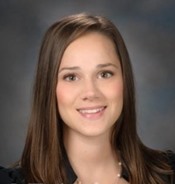Program Information
Validation of the Use of OSLD for Carbon Beam Remote Dosimetry
P Summers1*, J Lowenstein1 , O Jakel2 , H Prokesch2 , P Alvarez1 , D Followill1 , (1) UT MD Anderson Cancer Center, Houston, TX, (2) University of Heidelberg, Heidelberg, ,
Presentations
SU-E-T-509 Sunday 3:00PM - 6:00PM Room: Exhibit HallPurpose: To describe the commissioning of Aluminum Oxide Optically Stimulated Luminescent Dosimeters (OSLD) for the use in Carbon beam remote dosimetry for centers participating in NCI-funded cooperative group clinical trials.
Methods: As Carbon therapy centers express interest in participating in cooperative group clinical trials, the Imaging and Radiation Oncology Core Group (IROC) Houston QA Center (formerly RPC) is developing a way to remotely monitor the machine output of these Carbon facilities. OSLD have been commissioned for photon, electron and proton dosimetry, so an experiment was designed to commission the same dosimeters for Carbon. OSLD were irradiated in a Carbon therapy beam produced by the Siemens synchrotron at the Heidelberg Ion Therapy facility in Heidelberg, Germany. The OSLD were placed in acrylic phantoms, imaged with a CT scanner, and plans were developed using the Siemens treatment planning system. The OSLD were irradiated in uniform fields with maximum energies of 216, 301, and 402 MeV and at dose levels of 50, 100, 200 and 300 cGy.
Results: The response of the OSLD in the Carbon beam, as compared to the Cobalt-60 reference condition, required an energy correction of 1.85 to account for the particle correction. OSLD dose calculations typically have a linearity correction to account for the change in response relative to the change in dose delivered. However, the response of the OSLD in the Carbon beam was found to be independent of the dose level; thus the linearity correction is 1.00.
Conclusion: IROC Houston has commissioned OSLD for the use of remote output checks for Carbon therapy facilities to help ensure consistency across clinical trial participants.
Funding Support, Disclosures, and Conflict of Interest: Work supported by grant CA10953 (NCI, DHHS).
Contact Email:


